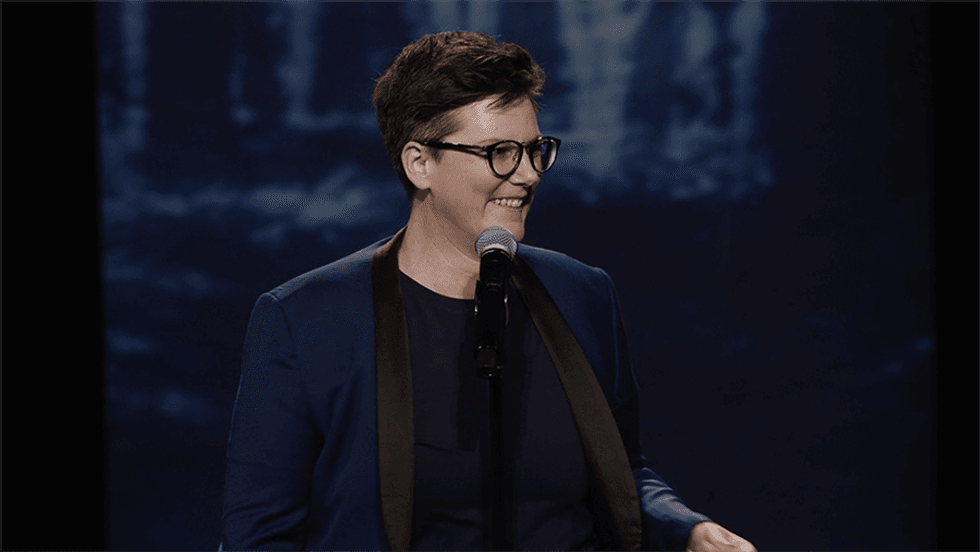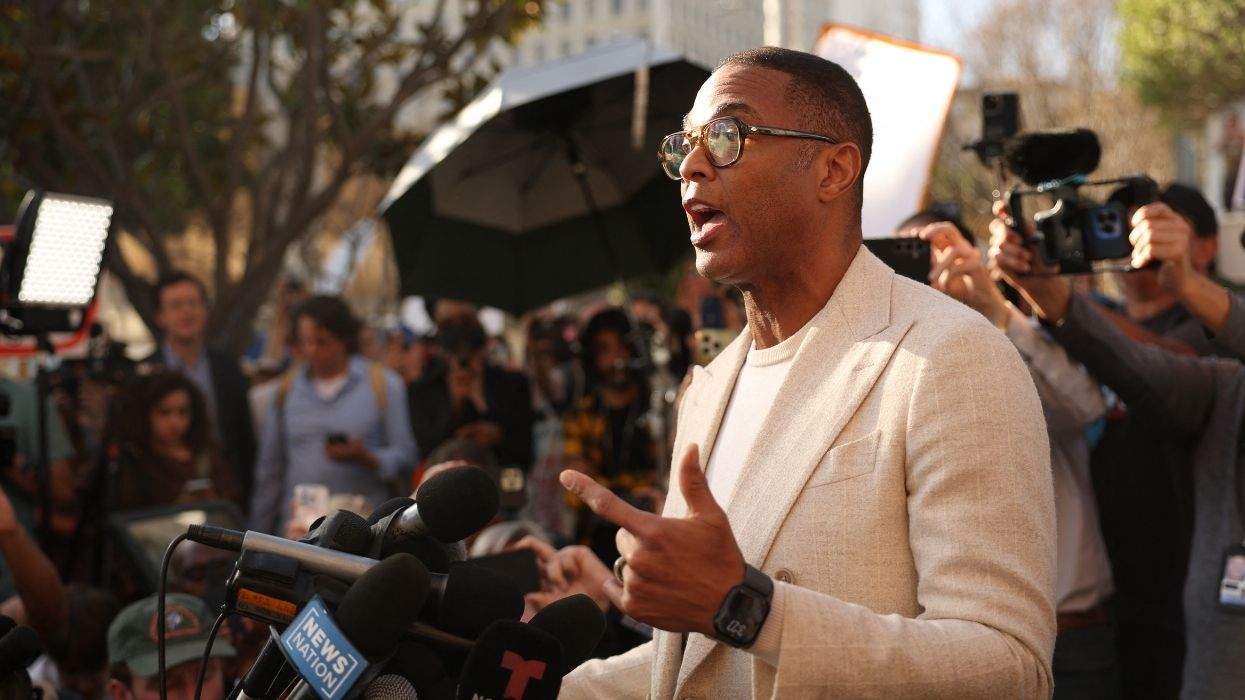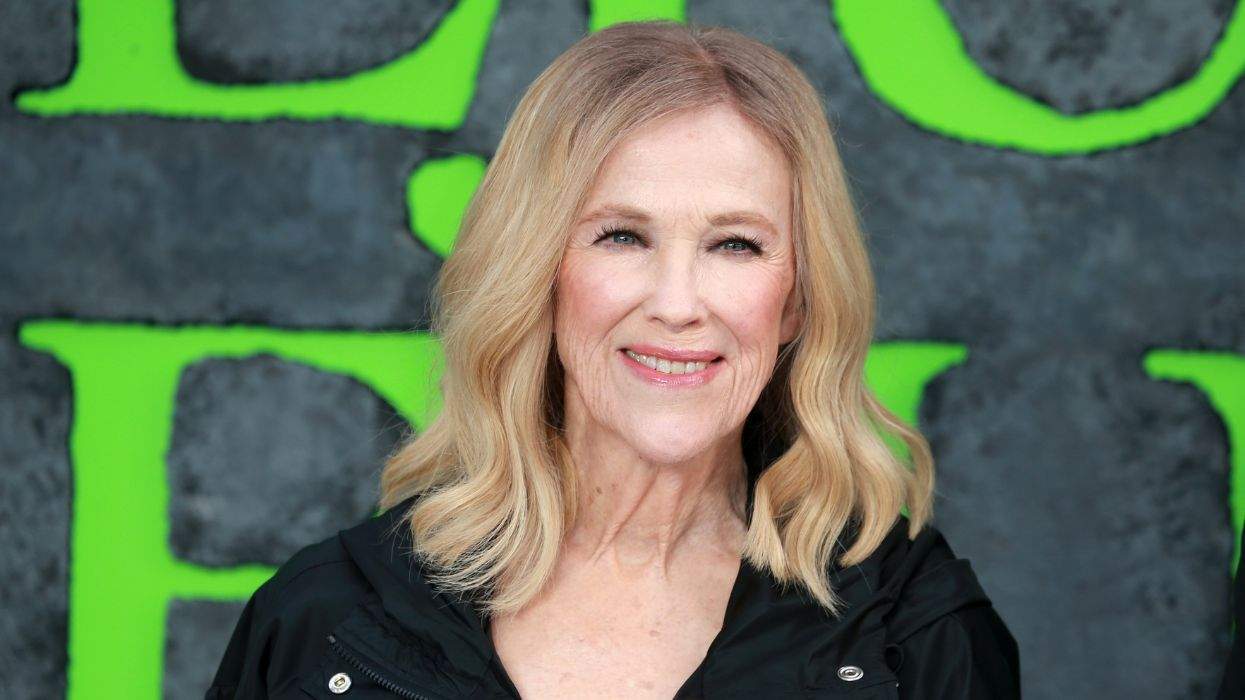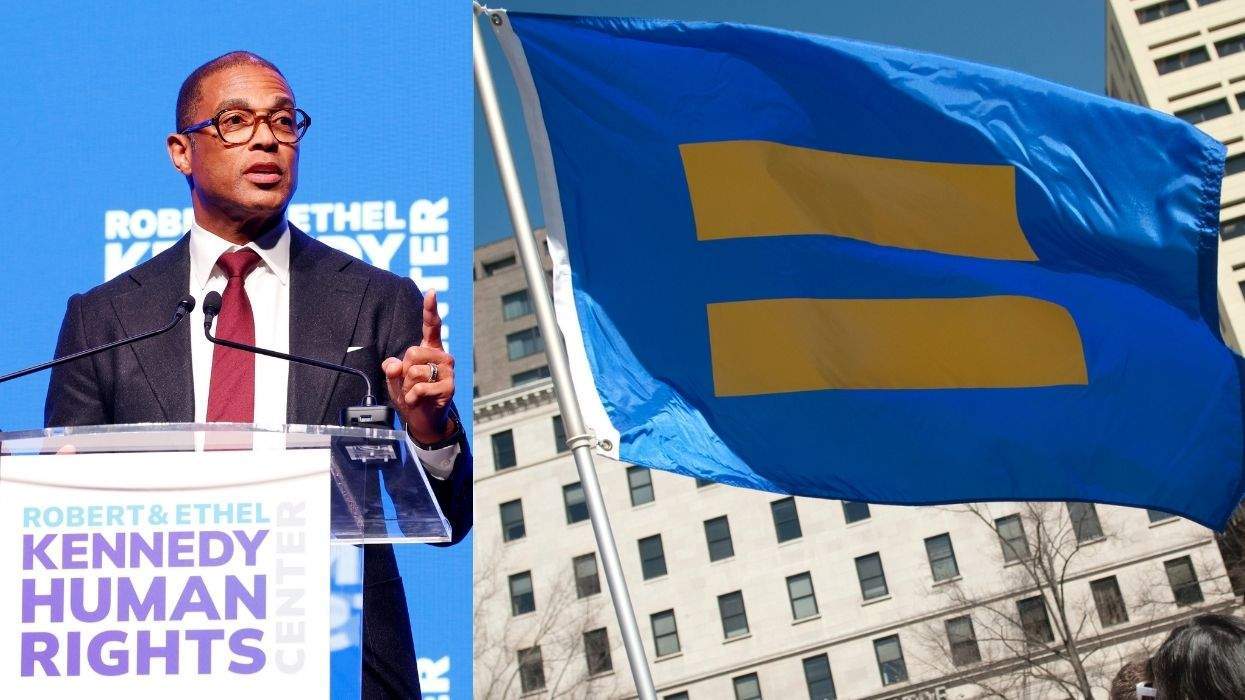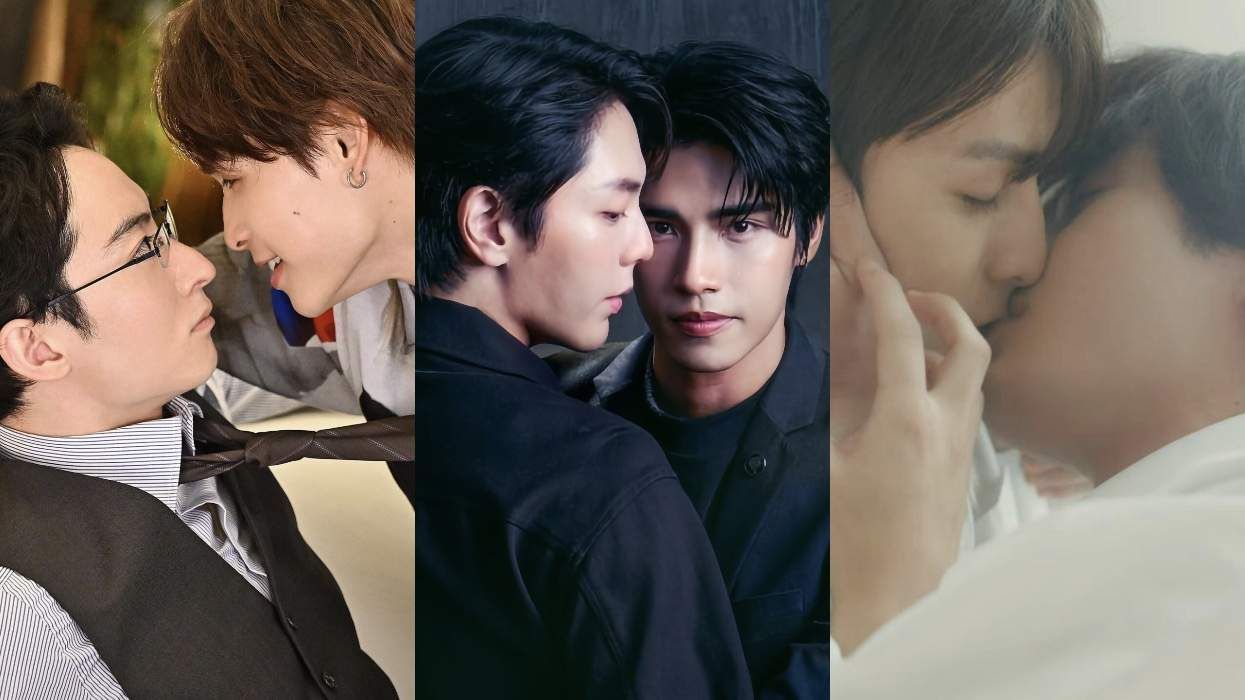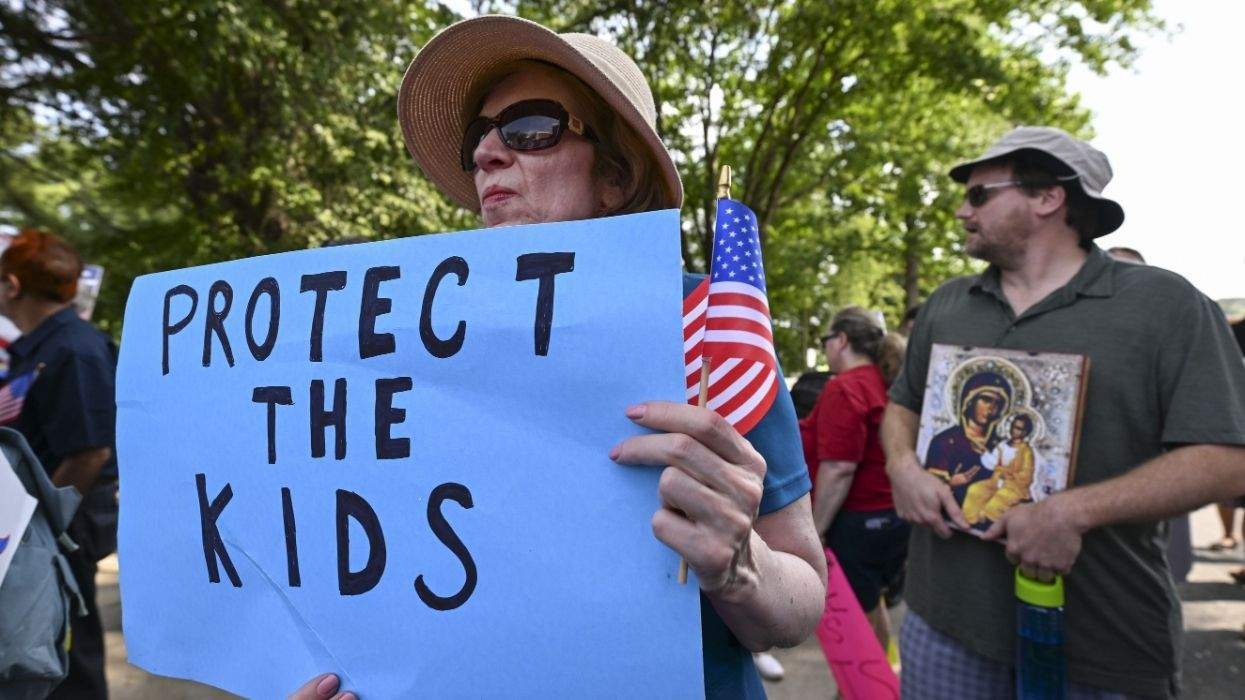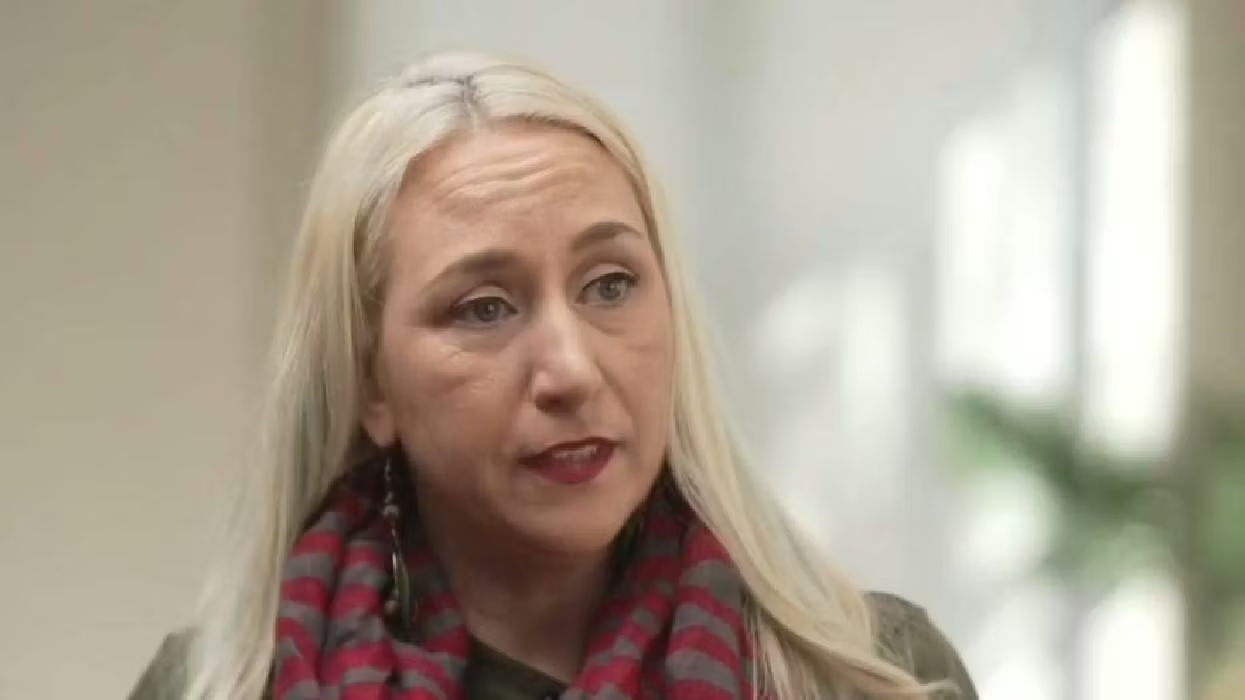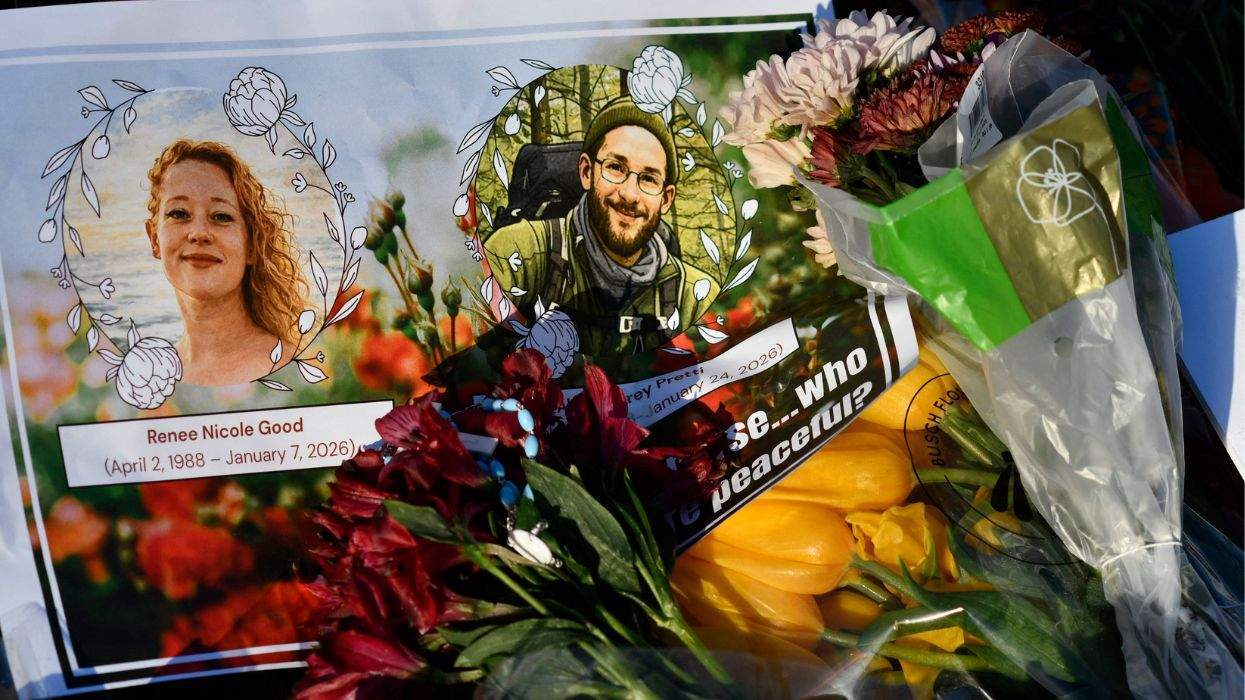Hannah Gadsby is tired these days.
You've either heard of this comedian by now, or someone on Twitter is urgently telling you to drop everything and get caught up. Since the June 19 premiere of her Netflix special Nanette, the quiet-spoken Australian woman has single-handedly turned the world of stand-up comedy upside down. Halfway through a well-worn set of jokes about being a butch lesbian in small-town Tasmania, Gadsby announces that she has to quit comedy and launches into a breathtaking, often furious monologue about bigotry, society's toxic ideals of male genius, and her own history of sealing off personal trauma into jokes as a survival tactic.
Already, her most passionate line has turned into a rallying cry for the #MeToo generation, quoted and meme'd across the internet: "There is no way anyone would dare test their strength out on me, because you all know there is nothing stronger than a broken woman who has rebuilt herself!"
Reach Gadsby on the phone, however, and you'll find an overwhelmed woman who needs to be left alone for a bit.
"I've stopped -- I can't participate," Gadsby tells The Advocate from her home in Tasmania, her voice warm and weary at the end of the line. "I'm too much in my head. I've just been touring for 18 months, I've done over 250 shows, and I am genuinely exhausted. So trying to grapple with being some kind of viral sensation, it would be the end of me. But I am aware that it's been overwhelmingly positive, and to that I'm very grateful."
She's now focused on recovering in her comfortable house shown in the opening credits, with the sunny kitchen and flowered teacup and the two dogs curled up on the couch. "Just lots of tea and naps, and limiting my interactions with people in my days away. I think the next six months will be kind of important to look after myself. I could get really ill if I didn't do that."
It's not hard to see why Nanette has resonated with so many people. In the era of Donald Trump and fake news, a storyteller who can connect with people through genuine, heartfelt emotion is an intense relief, to the point that you can almost feel guilty for drawing so much comfort from another person's pain. It's a similar experience to Patton Oswalt's Netflix special Annihilation, filmed when the comedian was still raw with grief over the death of his first wife.
"I think there's something to be said for [someone] saying, 'This hurts,'" Gadsby agrees. "There is a demand for genuine communication."
But there's an extra layer of cunning in the tightly-controlled narrative of Nanette, as she brings the audience's guard down with comfortable old jokes about Pride parades, homophobia, and coming out to her mum. In one of her more hilarious moments, she talks about a man who threatened to beat her up at a bus stop because he thought she was hitting on his girlfriend, only to back off when he realized she was a girl and got idiotically confused about what a lesbian is.
"'I don't hit women', he said! What a guy!" Gadsby says, playing the laughter perfectly. "I do understand that I have a responsibility to help lead people out of ignorance at every opportunity I can, but I left him there, people. Safety first!"
But when she turns the tables and explains why she's quitting comedy, you suddenly notice the sharp edges in her voice, and realize that you've been chuckling over homosexuality being illegal in Tasmania until 1997 -- a fact that deserves only to be infuriating. By the time she reveals the horrifying truth about the bigot at the bus stop, it's enough to break your heart.
"I didn't do it lightly," she tells The Advocate. "I really did break the contract with my audience. To be facetious, I think I can be proud that I've been able to shock them and pique this attention. That's very hard to do in this day and age."
Now that she has everyone talking, what does "quitting comedy" mean? Will she never do another standup special again? Or is she going to use this new momentum to change the genre of stand-up itself?
"It meant the former, [but] now it means the latter," Gadsby says carefully -- but when asked what her next project might look like, she isn't ready to talk about it. "No, I can't, I'm too tired. I really am exhausted."
Not to say that she doesn't have her eye on other formats that might suit her, whether it's podcasts or audiobooks or a new category altogether. "There's so many different ways people can be telling their story," she says. "Beyond anything that I could put out there, it's a very exciting time. It's also a very important time. We need to be thinking responsibly about what we're putting out into the world."
Discussing this with her, it's hard not to think of other women in comedy who have unleashed their anger in recent months: Kathy Griffin with her bloody Trump mask, Michelle Wolf pissing off pretty much everyone at the White House Correspondents' Dinner, Samantha Bee calling Ivanka Trump a "feckless c---" for her silence over America's "zero tolerance" immigration policy. It's tempting to wonder if female comedians will lead the charge against corrupt men in power -- or if the backlash over "civility" will only leave us more divided than ever.
Gadsby doesn't have much patience for that narrative, as it turns out.
"You named three women, but there's been twice as many men doing that for a very long time," she says. "I don't think it's fair to ask, 'Are women effective?' Stand-up is short, angry men -- they started that.
"Comedy has always been about rattling the cage," she adds. "In that sense, yes, it's effective."
Even lower on her list of priorities are all the men on social media who got defensive and jumped into people's mentions to complain that Nanette isn't funny. ("Do you know why I love making jokes about straight white men?" Gadsby remarks during the show, with a glint in her eyes. "They're such good sports. They're like, 'Aw, good joke about me! That's a refreshing perspective.'") Does she expect to change many hearts and minds?
"Dunno," she says. "Ask them. Talk to them. They've got to grow up. If that's what they get out of that special, honestly, if they bring that special back to themselves, I can't help them."
As satisfying as it is to watch Gadsby use her art history education to skewer Pablo Picasso, Roman Polanski, and other misogynists who have been elevated to mythological status at the expense of the women in their lives, taking down men is not her real goal. Rather, she's hoping to start a conversation about our cultural expectations of what genius is, and how destructive that can be to our sense of human connection.
"For me to put that Netflix special out, I did not do that on my own," she says. "There was an enormous amount of people that supported me, both personally and professionally, to get that show where it was. That took an enormous amount of energy from so many people. And, I'd like to add, a lot of straight white men. A lot of straight white men on Team Gadsby.
"As a student of art history, looking to these so-called geniuses, I think it's worth exploring those stories and to see what infrastructure was around them, and perhaps elevating those roles that helped put that art into the world. Let's talk about the support networks that those artists needed in place in order put that work out there."
Resting quietly at home with her dogs, she suggests a more nuanced perspective toward cultural achievement that could help us feel more connected, less alone.
"An interesting way to frame genius is to burst the bubble of individual greatness and say that in order to get great stuff into the world, you need a lot of great people working together."
Nanette is currently streaming on Netflix. Watch the trailer below.

